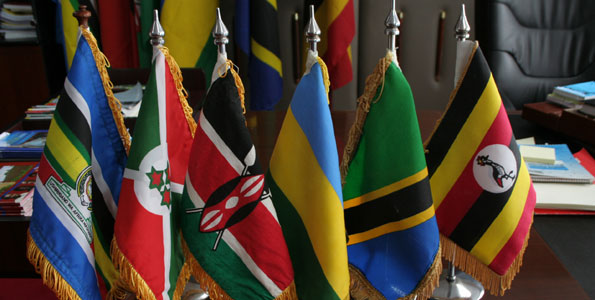Jobs in EAC said to be too few for the youth
Wed Jun 14, 2017
In 2010, East Africa’s youth accounted for 45 per cent of the total population. This number continues to grow and it is estimated that 75 per cent of region’s total population will be under the age of 34 in 2030.
The EAC Deputy Secretary General in-charge of productive and social sectors Mr Christophe Bazivamo said at the youth employment workshop in agriculture taking place in Dar es Salaam that the youth constitute the largest segment of the population across the EAC.
“Rural poverty and food security remain persistent and are linked with this problem of jobless growth,” he said. A regional inception workshop to launch the joint East African Community (EAC) and Food Agriculture Organisation (FAO) Project on Youth Employment in the Agricultural Sector in the EAC has kicked off yesterday.
He informed the meeting that EAC with financial and technical support from the FAO had prioritized the promotion of youth employment in the agricultural sector as one of the Community’s flagship initiatives. “This will be pursued under a Technical Cooperation Project (TCP) on Promoting Youth Employment in the Agricultural Sector in the EAC.
The overall objective of the TCP is to contribute to reducing rural poverty and boosting economic growth by supporting the creation of better opportunities for youth in the agricultural sector,” he said. He said it was unfortunate that Africa spends over 35 billion US dollars on food imports, which is a huge economic burden.
“Unless the current trend is reversed, Africa will spend 110 billion US dollars on food imports by 2025. The amount of money channeled to imports could make a big impact if invested to promote agricultural production and productivity,” he said.
He identified post-harvest food loss as one of the largest contributing factors to food and nutritional insecurity in Africa with more than 30 per cent of food produced for human consumption being lost or wasted through post-harvest losses, adding that the youth if supported could transform post-harvest losses into investment opportunities through value addition and agroprocessing ventures.
He urged EAC Partner States to look at agriculture in a multisectoral perspective, noting that Inclusive agricultural growth and transformation calls for an integrated approach. He said that infrastructure development is critical for catalyzing transformation of the agriculture sector.
“The lack of infrastructure drives up the cost of doing business and also discourages the private sector from investing in agricultural value chains. Linkages with agro- industrialisation fundamental.
For instance agroprocessing would help stimulate production by expanding and enhancing access to markets,” He emphasized the need to identify youth involved in transformational agricultural initiatives so that they are recognized and rewarded, noting that this would motivate more young people to recognise that investing in agriculture was a highly profitable initiative.
FAO Sub-regional Coordinator for Eastern Africa and FAO Representative to the African Union and the UN Economic Commission for Africa, Dr Patrick Kormawa, highlighted the worrying demographic trends in the EAC. He noted that the EAC was becoming home to an increasingly young population.
He said true rural transformation cannot be accomplished in the EAC without empowering the youth as actors of change. “FAO believes that boosting youth employment in agricultural value chains is a low hanging fruit for harvesting sustainable development, food security, and rural poverty reduction,” he said
SOURCE: DAILY NEWS


Write Your Comments